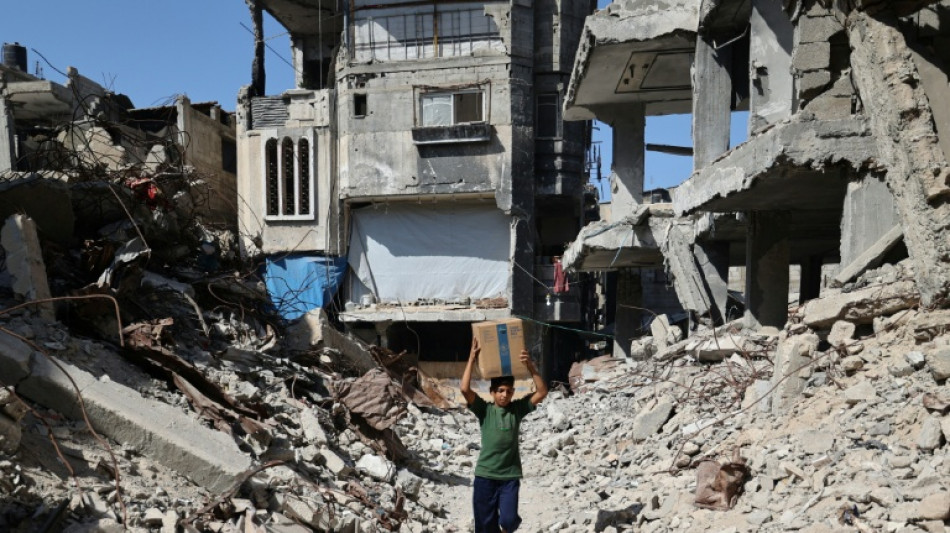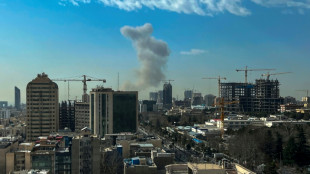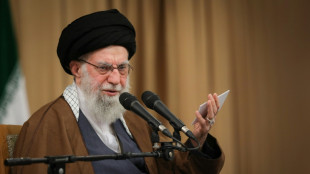
Israel and Hamas accuse each other of breaching Gaza truce amid strikes, clashes

Gaza's nine-day-old ceasefire came under strain Sunday after the Israeli army said it launched air strikes in the territory's south in response to attacks it claimed were carried out by Hamas militants against its forces.
Hamas, however, maintained it was adhering to the truce, with one official accusing Israel of devising "pretexts" to resume its own attacks.
Israeli Prime Minister Benjamin Netanyahu instructed security forces to take "strong action against terrorist targets in the Gaza Strip", his office said in a statement, accusing Hamas of "a ceasefire violation".
The uneasy truce in the Palestinian territory, brokered by US President Donald Trump and taking effect on 10 October, brought to a halt more than two years of devastating war between Israel and Hamas.
The deal established the outline for hostage and prisoner exchanges, and was proposed alongside an ambitious roadmap for Gaza's future but has immediately faced challenges in implementation.
"Earlier today, terrorists fired anti-tank missiles and opened fire on IDF (army) forces operating to destroy terrorist infrastructure in the Rafah area in accordance with the terms of the agreement," the military said in a statement.
"The IDF responded with air strikes by fighter jets and artillery fire, targeting the Rafah area," the statement said.
Earlier, an Israeli army official said Hamas fighters carried out "multiple attacks" on troops in territory under Israel's control.
Palestinian witnesses told AFP clashes erupted in the southern city of Rafah in an area still held by Israel.
One witness, a 38-year-old man who asked not to be identified by name, said that Hamas had been fighting a local Palestinian gang known as Abu Shabab but the militants were "surprised by the presence of army tanks".
"The air force conducted two strikes from the air," he said.
The clashes broke out as Prime Minister Benjamin Netanyahu held meetings with government ministers. Afterwards, some ministers called for Israeli forces to resume their war against the Palestinian militant group.
- 'Security illusion' -
Earlier, national security minister and right-wing firebrand Itamar Ben Gvir urged the army to "fully resume fighting in the Strip with all force".
"The illusion that Hamas will repent, or even abide by the agreement it signed, is proving -- as expected -- dangerous to our security," he added, calling for Hamas to be "completely annihilated".
A statement from Izzat Al-Rishq, a member of Hamas' political bureau, reaffirmed the group's commitment to the ceasefire and said Israel "continues to breach the agreement and fabricate flimsy pretexts to justify its crimes".
Hamas' armed wing insisted on Sunday that the group was adhering to the ceasefire agreement with Israel and had "no knowledge" of any clashes in Rafah.
US peace envoy Steve Witkoff is expected in the Middle East next week to monitor progress in the ceasefire deal.
Under Trump's 20-point plan, Israeli forces have withdrawn beyond the so-called Yellow Line, leaving them in control of around half of Gaza, including the territory's borders but not its main cities.
Hamas in turn has released 20 surviving hostages and is in the process of returning the remaining bodies of those who have died.
The war, triggered by Hamas's October 7, 2023 attack on Israel, has killed at least 68,159 people in Gaza, according to the health ministry in the Hamas-run territory, figures the United Nations considers credible.
The data does not distinguish between civilians and combatants but indicates that more than half of the dead are women and children.
The health ministry has also said that since the ceasefire came into effect, 35 Palestinians have been killed by Israeli fire.
Hamas's 2023 attack on Israel resulted in the deaths of 1,221 people, mostly civilians, according to an AFP tally based on official Israeli figures.
- Rafah crossing closed -
On Sunday, Israel identified the latest two bodies returned overnight as Ronen Engel and Thai farmworker Sonthaya Oakkharasri.
Engel, a resident of Nir Oz kibbutz, was abducted from his home aged 54 and killed during the October 7 attacks, with his body taken to Gaza.
He was a photojournalist and volunteer ambulance driver for Magen David Adom, the Israeli equivalent of the Red Cross in the southern Negev region.
A farmworker at the Beeri kibbutz, Oakkharasri was also killed in the attack on Israel and his body held by Hamas in Gaza. He had a seven-year-old daughter.
Israel returned the bodies of 15 Palestinians to Gaza on Sunday, bringing the total number handed over to 150, the health ministry in the Hamas-run territory said.
The issue of hostage bodies still in Gaza has become a sticking point in the ceasefire implementation, with Israel linking the reopening of the main gateway into the territory to the recovery of all of the deceased.
Relief agencies have called for the Rafah border crossing from Egypt to be reopened to speed the flow of food, fuel and medicines.
Hamas has so far resisted disarming and, since the pause in fighting, has moved to reassert its control over Gaza.
The group has said it needs time and technical assistance to recover the remaining bodies from under Gaza's rubble.
Netanyahu's office said he had "directed that the Rafah crossing remain closed until further notice".
"Its reopening will be considered based on how Hamas fulfils its part in returning the hostages and the bodies of the deceased, and in implementing the agreed-upon framework," it said.
Hamas warned late Saturday that the closure of the Rafah crossing would cause "significant delays in the retrieval and transfer of remains".
burs-dc-csp/smw
O.R.Lucchese--INP

 London
London

 Manchester
Manchester
 Glasgow
Glasgow
 Dublin
Dublin
 Belfast
Belfast
 Washington
Washington
 Denver
Denver
 Atlanta
Atlanta
 Dallas
Dallas
 Houston Texas
Houston Texas
 New Orleans
New Orleans
 El Paso
El Paso
 Phoenix
Phoenix
 Los Angeles
Los Angeles



